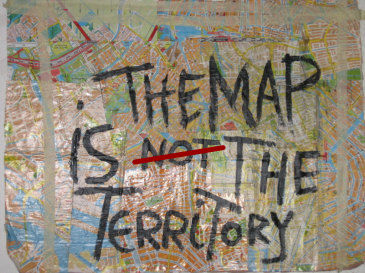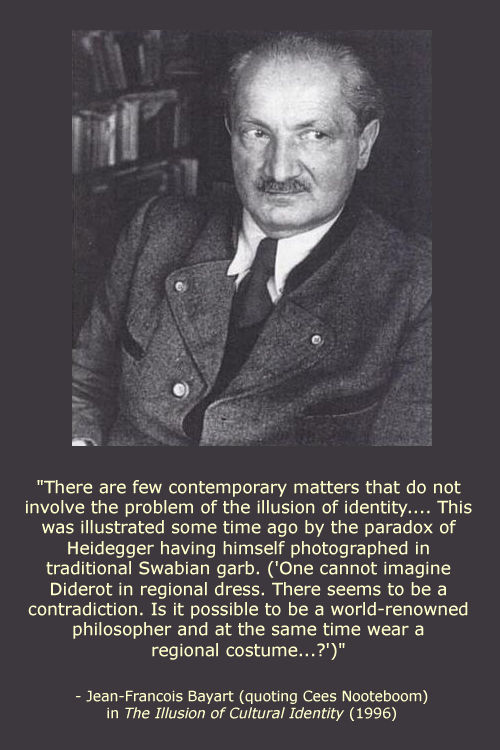 So opened The National Post‘s September 10, 2013, article on the Canadian province of Quebec’s recent (and for some, rather controversial) Charter of Quebec Values, along with the accompanying picture of the Premiere, Pauline Marois, joined by Bernard Drainville, the Minister Responsible for Democratic Institutions and Active Citizenship. Continue reading “The Natural Look”
So opened The National Post‘s September 10, 2013, article on the Canadian province of Quebec’s recent (and for some, rather controversial) Charter of Quebec Values, along with the accompanying picture of the Premiere, Pauline Marois, joined by Bernard Drainville, the Minister Responsible for Democratic Institutions and Active Citizenship. Continue reading “The Natural Look”
A Character Study
 Have you seen this beer new commercial? Continue reading “A Character Study”
Have you seen this beer new commercial? Continue reading “A Character Study”
Constructing Worlds
 In a recent New York Times interview, author Jhumpa Lahiri expressed a certain frustration with the ways people sometimes classify literature.
In a recent New York Times interview, author Jhumpa Lahiri expressed a certain frustration with the ways people sometimes classify literature.
I don’t know what to make of the term “immigrant fiction.” Writers have always tended to write about the worlds they come from. Continue reading “Constructing Worlds”
“The Same…, But Different”
 In 2008 I took a small group of undergraduate students from our Department at the University of Alabama to Thessaloniki, Greece (that’s us above, with a famous philosopher, who has a shiny toe, likely from tourists rubbing it), where I had been for a conference a couple years before, and at which I first met my Culture on the Edge colleague, Vaia Touna. I’ve returned several times since that first trip, sometimes with other students and sometimes to help further my own school’s initiative to establish a long term relationship with Aristotle University — a school whose namesake was from a village about an hour’s drive east of the city. Continue reading ““The Same…, But Different””
In 2008 I took a small group of undergraduate students from our Department at the University of Alabama to Thessaloniki, Greece (that’s us above, with a famous philosopher, who has a shiny toe, likely from tourists rubbing it), where I had been for a conference a couple years before, and at which I first met my Culture on the Edge colleague, Vaia Touna. I’ve returned several times since that first trip, sometimes with other students and sometimes to help further my own school’s initiative to establish a long term relationship with Aristotle University — a school whose namesake was from a village about an hour’s drive east of the city. Continue reading ““The Same…, But Different””
What did you say?
 A New York Times article on Sunday about the use of emoji (the increasing number of smiley face options for texts and social media) discussed differences in the ways people use those symbols in different societies. A Facebook project manager, for example “traveled to India and Japan to better understand the differences.” After his travels, he is quoted as saying.
A New York Times article on Sunday about the use of emoji (the increasing number of smiley face options for texts and social media) discussed differences in the ways people use those symbols in different societies. A Facebook project manager, for example “traveled to India and Japan to better understand the differences.” After his travels, he is quoted as saying.
“We discovered that in the Asian culture, the expression on an emoji face isn’t necessarily what conveys emotion. It’s the context of where that face is located,” Mr. Marra said. Continue reading “What did you say?”
The Map is the Identity

Not long ago I heard a story on “Morning Edition,” the National Public Radio news show, on the order and identity that GPS and maps are now bringing to the Kenyan slum of Mathare (in Nairobi), and on the lives of a group of people there who have formed The Spatial Collective. Give it a listen here — but when you do, keep in mind Alfred Korzybski‘s (d. 1950) much-quoted statement that the map is not territory. Continue reading “The Map is the Identity”
When the Labels Don’t Fit
 Discourse sorts our world, as Craig Martin illustrated nicely in a post last week. Identity labels are an aspect of discourse, but they also operate in another way, beyond organizing people. Labels also push people to conform by presenting a normative sense of who they are/should be. Continue reading “When the Labels Don’t Fit”
Discourse sorts our world, as Craig Martin illustrated nicely in a post last week. Identity labels are an aspect of discourse, but they also operate in another way, beyond organizing people. Labels also push people to conform by presenting a normative sense of who they are/should be. Continue reading “When the Labels Don’t Fit”
On Contradiction
 Read more.
Read more.
What’s in a Name?
 National Public Radio in the U.S. has a well-known correspondent named Mandalit del Barco — recently (and humorously) voted the best name in public radio. Her name is so well known to NPR listeners that the guys at “Car Talk,” a call-in car repair show, parody it — among the many other fictitious people who staff their show — in their closing credits, thanking their “inventory manager, Mandalit del Barcode.”
National Public Radio in the U.S. has a well-known correspondent named Mandalit del Barco — recently (and humorously) voted the best name in public radio. Her name is so well known to NPR listeners that the guys at “Car Talk,” a call-in car repair show, parody it — among the many other fictitious people who staff their show — in their closing credits, thanking their “inventory manager, Mandalit del Barcode.”
But what I find interesting is how she says her own name and what it says about our commonsense view of language and identity. Continue reading “What’s in a Name?”
The Reporter and the Author
 It’s been interesting to see Culture on the Edge‘s two month old site cited recently — for example, consider this post below from a Metafilter.com discussion board about one of my own posts on the Aslan/FOX News affair (click to enlarge): Continue reading “The Reporter and the Author”
It’s been interesting to see Culture on the Edge‘s two month old site cited recently — for example, consider this post below from a Metafilter.com discussion board about one of my own posts on the Aslan/FOX News affair (click to enlarge): Continue reading “The Reporter and the Author”
